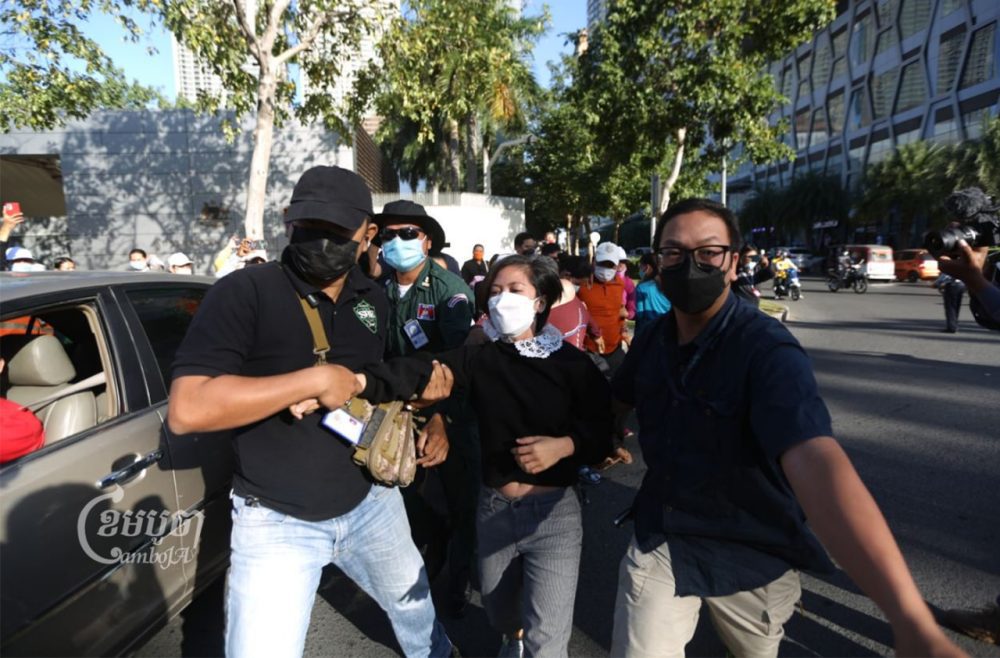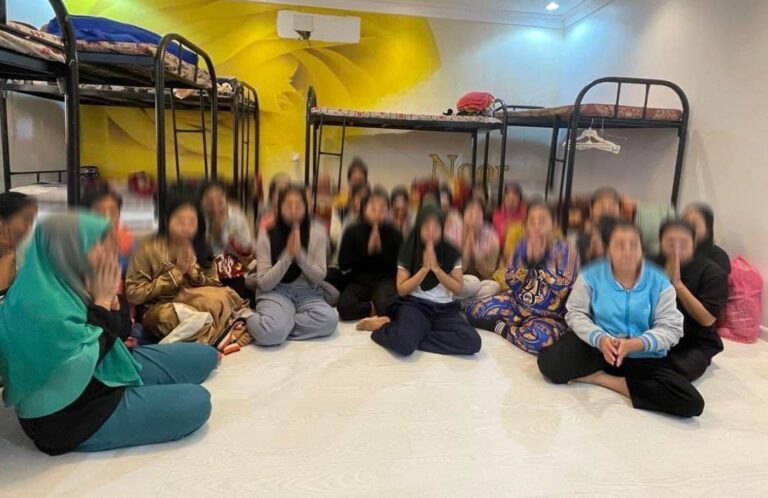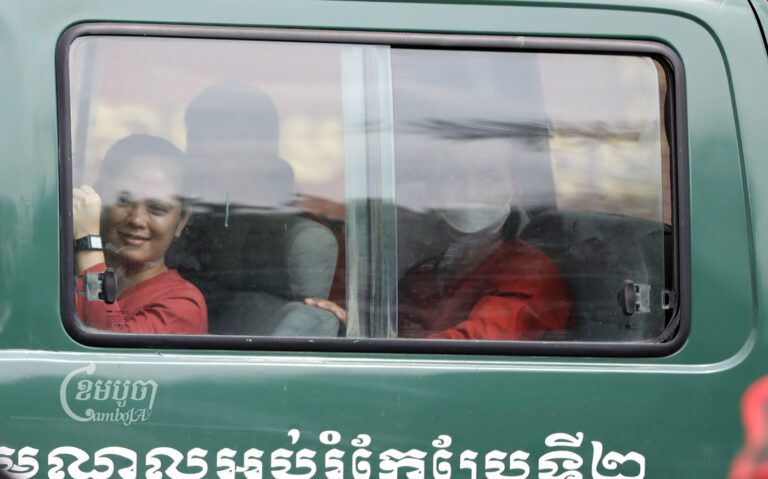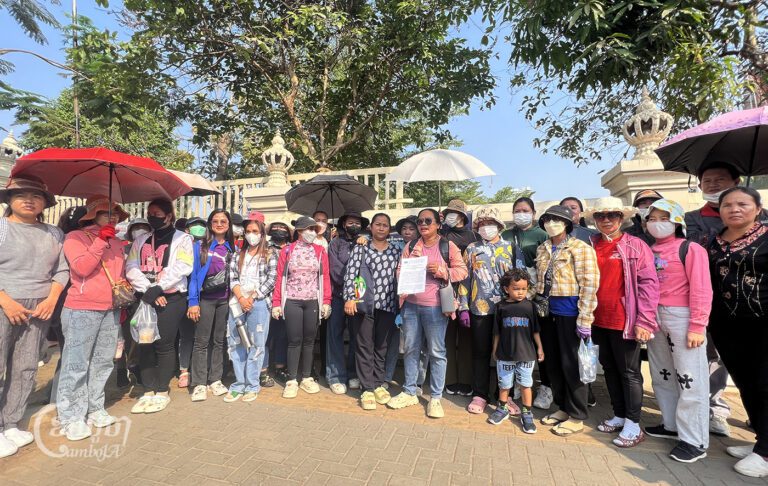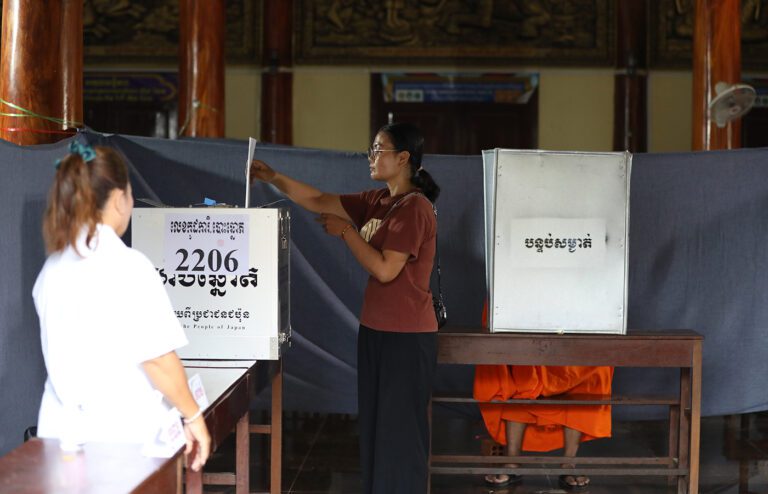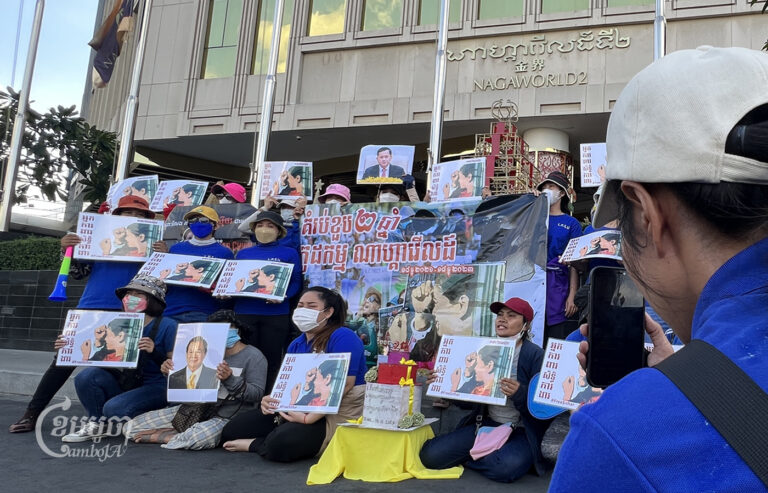The government has used the pandemic as justification to jail unionists, restrict union registration and block the right to strike, with garment and tourism sector employers using union-busting tactics that threaten the existence of independent unions, Human Rights Watch said in a new report.
The report, “Only ‘Instant Noodle’ Unions Survive: Union Busting in Cambodia’s Garment and Tourism Sectors,” released Monday outlines how the government, garment factories, a casino firm and other businesses have employed legal and administrative means — from criminal charges to government bureaucracy — that weaken independent unions and violate workers’ rights, while employer- and government-friendly unions, which are able to register as quickly as it takes to make instant noodles, have benefited.
The human rights watchdog documented five cases of unfair dismissals and mass layoffs that targeted union leaders and activists, exemplifying the “long-standing problem of union-busting that has dogged Cambodia’s labor relations history,” HRW said in a statement.
Members of the Labor Rights Supported Union of Khmer Employees of NagaWorld (LRSU), who have sustained a regular protest near the Phnom Penh casino for almost a year, have said layoffs of more than 1,300 workers in April last year targeted the union’s leaders and membership. The company said the layoffs were the result of the economic downturn during the pandemic.
Workers, unions and civil society groups have called on NagaWorld to reinstate laid-off workers, pay seniority benefits and comply with the labor law.
Since the strike began in December 2021, LRSU leaders and members have been injured during protests, jailed, charged with crimes related to their strike, which the government has branded illegal, and shoved onto buses by authorities and detained at Covid-19 quarantine sites by authorities.
LRSU president Chhim Sithar was charged with incitement to commit a felony over the union’s strike, which has called for the reinstatement of 365 dismissed workers and fair compensation from NagaWorld. The union leader was held in pretrial detention for more than two months before being released on bail in March alongside seven other LRSU members, but their charges remain pending.
On the same day they were released, the Labor Ministry recognized a new union at NagaWorld, which rights groups warned could obstruct negotiations to end the labor dispute between LRSU and the company.
Sithar has said anti-union measures by NagaWorld and authorities amount to efforts to break their independent union and replace it with a front group.
“After we started our strike [against NagaWorld casino], a fake, new union suddenly appeared, which we call the ‘instant noodle’ union because it got registered with the Ministry [of Labor and Vocational Training] as fast as a cup of two-minute instant noodles,” she said, according to HRW. “Workers at NagaWorld don’t even know that a union election took place and who voted for the leader.”
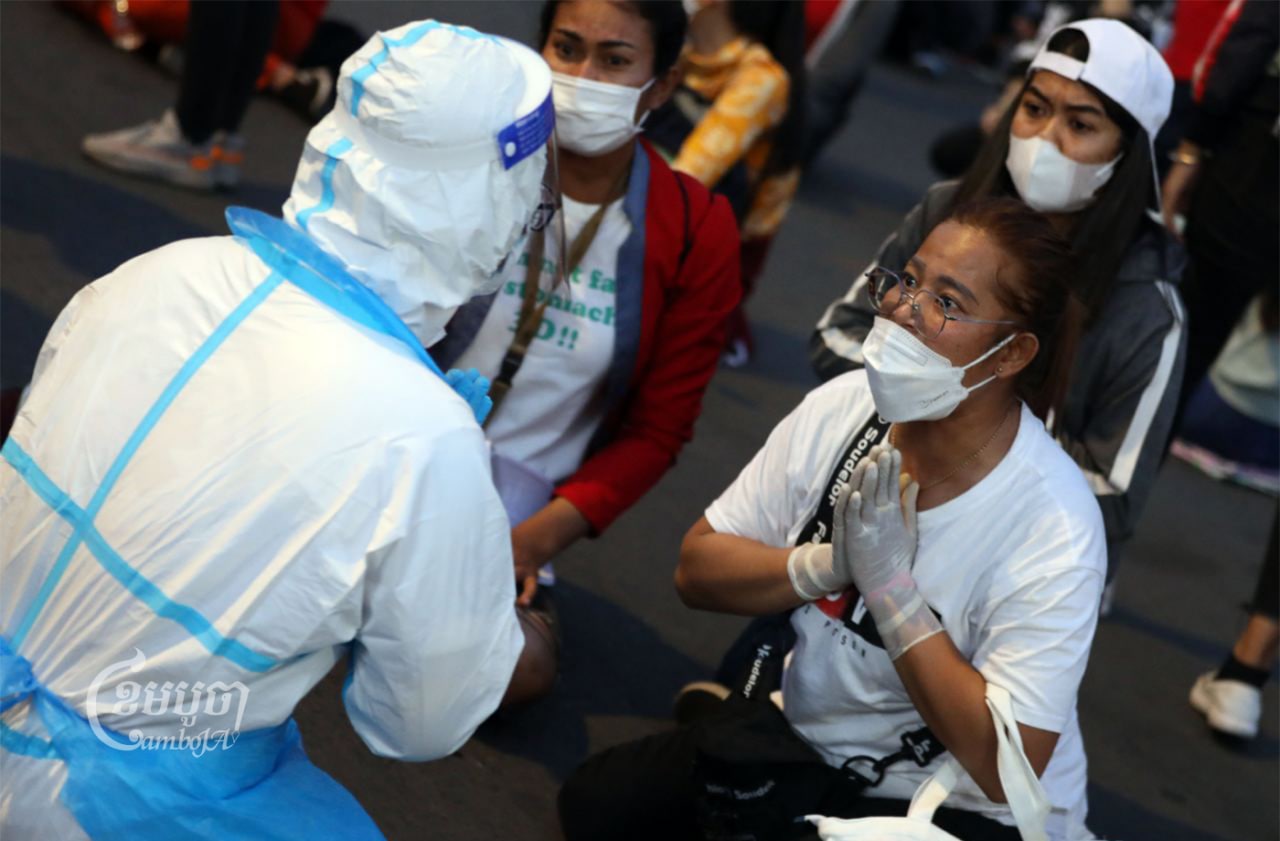
Union Leaders Threatened
HRW interviewed 32 independent union leaders and members in the garment and tourism industries, as well as labor rights advocates, between March and June this year.
In four cases, the rights organization found that authorities and employers used or threatened to use Cambodia’s widely-criticized criminal justice system to “silence union leaders and activist members by arbitrarily arresting, detaining, and prosecuting them, or threatening to do so if unions actions did not stop,” according to the report.
Authorities cited “bogus charges” like “incitement to commit a felony” and unproven violations of the anti-Covid-19 law, HRW said.
Interior Ministry spokesperson Khieu Sopheak claimed Human Rights Watch’s findings were “baseless” and said anyone who violates the law, labor activists or others, would be arrested and jailed according to the law.
“Cambodia is required to do this. Even if the Human Rights Watch director has violated the laws of Cambodia, he will be imprisoned,” Sopheak said.
Yang Sophorn, president of Cambodian Alliance of Trade Unions, said the report’s conclusions about the government’s crackdown on independent unionists and workers’ strikes during the pandemic were accurate.
“When they have seen unions join to support our members, we have received a warning or were threatened, despite the fact that we have followed the law,” she said. “The state has used all means to protect private companies, and they have been violating workers’ right [to strike].”
In 2020, the Labor Ministry issued a letter accusing Sophorn of inciting workers at Violet Apparel garment factory to pressure and threaten their employers, claiming her organizing activities after the factory was shuttered had violated the Law on Trade Unions and the Health Ministry’s Covid-19 guidelines.
In August, the Labor Ministry again warned Sophorn, this time for allegedly forcing NagaWorld workers to continue to protest, with the ministry threatening “punishment” if she continued her “illegal activities,” VOD reported.
Labor Ministry spokesperson Heng Sour called HRW’s report “inaccurate” and “unprofessional,” adding that the government had worked to maintain the jobs and livelihoods of all union leaders and activists.
“Amid the Covid-19 pandemic, the Royal Government has made efforts to protect the welfare, lives, jobs and interests of workers, including providing [social welfare] assistance to workers who had been affected in the garment sector,” he said.
Phil Robertson, HRW’s deputy Asia director, said that while Cambodia has ratified the main international labor rights conventions, the country “fundamentally fails to comply with them on a regular basis.”
Abuses of unions included Labor Ministry biases against registering independent unions, the ministry classifying labor disputes as individual rather than collective cases so they are not heard by the Arbitration Council, which mediates labor disputes, and employers misusing fixed-duration contracts as a means to inhibit unionization efforts, Robertson said during a live-streamed press conference.
In 2019, the Labor Ministry issued new instructions that allow employers to use fixed-duration contracts, which typically are for two to six months, for a four-year period. Union leaders told HRW that fixed contracts were “often discontinued without cause or notice in response to workers’ union activities.”
Dismissed union leaders in the garment sector said they believed their names were blacklisted, preventing them from getting hired by other factories after being fired, according to the report.
Robertson said foreign governments, including key export markets like the U.S. and the European Union, should enforce labor rights benchmarks on Cambodia as a prerequisite to the country accessing foreign trade preferences.
External pressure should also come from international brands buying goods made in Cambodia and would be an opportunity to reform the sector, he added.
Representatives of the Arbitration Council and NagaWorld could not be reached on Monday.


